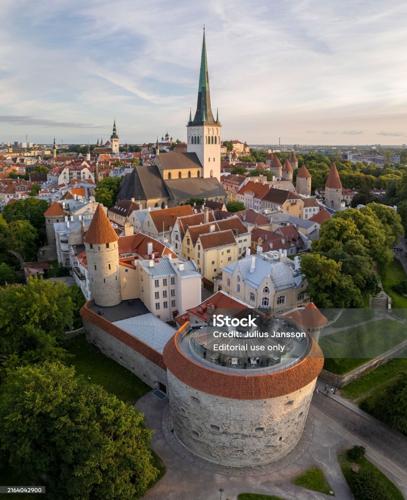Diogenes of Oenoanda: The Cynic Philosopher Who Left His Mark
The Life and Legacy of Diogenes of Sinope
Diogenes of Oenoanda, also known as Diogenes of Sinope, was one of the most intriguing figures in ancient philosophy, particularly within the Cynic school. Born around 404 BCE in Sinope, a city on the Black Sea coast of modern-day Turkey, his teachings and philosophical approach have left behind a lasting legacy. Despite his humble origins, Diogenes became a household name among both academics and general readers alike, thanks to his bold lifestyle and provocative ideas.
Tracing his life journey, Diogenes moved to Athens at a young age where he embraced the teachings of Antisthenes, who was himself a student of Socrates. This influence was pivotal in shaping Diogenes' own philosophy, which emphasized a return to a more natural and simple way of living—a stark departure from the conventions and complexities of Athenian society.
Diogenes was renowned for his extreme asceticism and unconventional lifestyle. He famously lived in a barrel, which became the symbol of his rejection of societal norms. His philosophy centered around the idea that virtue is sufficient for happiness, and that one should lead a life free from material possessions and societal pretensions. He often criticized the luxurious lifestyles of others, asserting that true freedom lies in living according to nature.
Historical records paint a picture of Diogenes as a man who embraced extreme poverty not out of necessity but as a form of protest against societal values and the pursuit of wealth. He would walk the streets of Athens barefoot and wearing a cloak made from reeds or palm leaves, further illustrating his disdain for traditional clothing and comforts.
Philosophical Contributions and the Oenoanda Inscription
Diogenes gained notoriety both during his lifetime and posthumously through his philosophical contributions. Many of his thoughts and teachings were recorded by other philosophers, such as Onesicrates and Apollonius of Tyana. These accounts provide crucial insights into his beliefs and the impact he had on subsequent Cynics.
However, it is the discovery of the Oenoanda Inscription in the late 19th century that truly brought Diogenes' philosophy into the spotlight. Unearthed in Opona (now known as Oenoanda) in modern-day Turkey, this massive stone inscription measured over half a mile long and covered a stretch of nearly twenty feet high. Dating back to the early 2nd century CE, the inscription detailed Diogenes' philosophy, covering topics ranging from ethics to politics, religion, and metaphysics.
The inscription begins with a section attributed to Diogenes himself, which describes his biography and his philosophical journey. It outlines how he traveled extensively, teaching and writing, and explains his belief in universal brotherhood and the pursuit of virtue. The text emphasizes the importance of living in accordance with nature and rejects material possessions and social standing.
One of the central themes of the inscription is the critique of democracy and the pursuit of pleasure. Diogenes argues that the concept of democracy is flawed because it leads to the accumulation of wealth and power, which in turn corrupts individuals and society. Instead, he advocates for a form of government that prioritizes virtue and the common good.
Religious Perspectives According to Diogenes
Diogenes took a radical stance against established religious practices, advocating for a more rational and ethical approach to faith. While his philosophy aligns closely with the Cynic tradition in many respects, his views on religion were notably unique. He rejected the veneration of gods and argued that religion should focus on human virtue rather than divine worship.
Digging deeper into the inscription, Diogenes asserts that human nature reflects the nature of the universe, and that living in harmony with nature is the key to understanding both individual and cosmic truths. This naturalistic approach to religion is evident in his condemnation of superstitious rituals and emphasis on moral conduct.
In his critique of traditional deities, Diogenes posits that the gods are not to be worshipped for rewards or favors but should be revered as symbols of virtue and the ideal human behavior. He sees the pursuit of piety and virtuous actions as a means to achieve spiritual fulfillment rather than seeking divine intervention through prayer or sacrifice.
Moreover, Diogenes challenges the notion that morality is dependent on divine command. Instead, he argues for a self-sufficient ethical system based on reason and observation. He believes that humans should live in accordance with what is natural and avoid artificial constructs that deviate from this fundamental truth.
The Philosophical Impact and Influence of Diogenes
The life and teachings of Diogenes of Oenoanda have profoundly influenced Western thought, particularly in the realm of Cynicism and stoicism. His critique of materialism and hedonism resonates even today, reflecting a timeless quest for authenticity and inner peace. Many of his ideas anticipated modern philosophies of simplicity and minimalism, making him a relevant figure in contemporary discussions about consumption and well-being.
The legacy of Diogenes extends beyond philosophy; his lifestyle has inspired countless individuals throughout history to challenge societal norms and live by their convictions. Figures such as the 15th-century Renaissance figure Piero dellaFrancesca and the modern-day anarchist and philosopher Murray Bookchin have cited Diogenes as an influence. Deliberately living in poverty, they seek to reject the false dichotomy between personal freedom and social responsibility.
Moreover, Diogenes' philosophical approach has significant implications for current discussions on environmental ethics and sustainability. By emphasizing our innate connection to the natural world, he encourages us to adopt a more harmonious relationship with the environment. This perspective challenges contemporary environmental policies and consumer culture, advocating for practices that minimize ecological footprints.
The study of Diogenes continues to inspire both academic research and popular discourse. Scholars frequently analyze his texts, exploring the nuances of his arguments and examining their relevance in the modern era. Books and articles dedicated to Diogenes explore not only his philosophical doctrines but also his psychological resilience and charismatic personality.
The enduring popularity of Diogenes’ teachings is a testament to the universal appeal of his message. His philosophy remains a powerful tool for personal transformation and societal critique, urging individuals to question their assumptions and strive for genuine human fulfillment. Whether through direct examination of his surviving works or through cultural references that draw upon his legacy, Diogenes continues to captivate the imagination and provoke reflection.
Ancient Accounts and Modern Interpretations
The historical accounts of Diogenes' life and actions offer additional context to his philosophical contributions. Plutarch, for instance, recounts several anecdotes that highlight Diogenes' controversial and sometimes shocking behavior. One famous story describes how Diogenes exposed himself in broad daylight in the Theater of Dionysus in Athens, asserting that there is nothing shameful about nudity since all men are equally naked when they die. This act symbolized his belief in the equality of all human beings and his disdain for societal taboos.
Another notable account comes from Diogenes Laërtius, who compiled information from various sources to construct a more comprehensive picture of Diogenes and his Cynic teachings. Diogenes Laërtius included numerous anecdotal evidence and quotes that demonstrate Diogenes' commitment to the Cynic philosophy. These accounts often depict Diogenes engaging in activities that were intended to shock and provoke his contemporaries, thereby drawing attention to the absurdities of their customs and beliefs.
Modern scholars have delved into these accounts to understand Diogenes' psychology and the effectiveness of his methods. Some argue that his behavior was not merely provocative but was part of a broader strategy to awaken people from the illusions imposed by society. Others suggest that his unorthodox actions were meant to challenge the status quo and highlight the contradictions within existing social structures.
In contemporary times, Diogenes' life and teachings have been subjects of much debate and interpretation. Some view him as a prophet of a minimalist, ascetic lifestyle, emphasizing the importance of living simply and in harmony with nature. Others see him as a pioneer of existential philosophy, advocating for an authentic, unadorned life. His rejection of conventional wisdom and his embrace of a life defined by virtue and personal integrity continue to resonate with those who seek alternative paths in life.
Educational Relevance and Contemporary Impact
Diogenes' philosophy extends into the realm of education, influencing pedagogical approaches and curricula both historically and in the present day. Educators often point to Diogenes as an example of a critical thinker who questioned established beliefs and encouraged students to think independently. In classrooms across the world, his teachings inspire discussions about the nature of virtue, the value of simplicity, and the importance of living authentically.
The Cynic philosophy, espoused by Diogenes, promotes the idea that true knowledge and wisdom come from experience and direct engagement with the world rather than from abstract theory. This epistemological approach aligns with modern educational theories that emphasize experiential learning and practical skills. Schools and universities incorporate elements of Diogenes' philosophy into their mission statements and core values, encouraging students to explore the world critically and to develop a sense of moral responsibility.
Moreover, educators often discuss Diogenes' critiques of democracy and hierarchical societies as a means to foster an understanding of political systems. His arguments about the corrupting influence of wealth and power continue to be relevant in discussions about income inequality and social justice. By examining Diogenes' views on governance and the common good, students can grapple with contemporary issues such as social inequality and the role of the individual in shaping society.
Aesthetic and Artistic Representations
The enduring legacy of Diogenes has inspired numerous artistic depictions and representations throughout history. Artists and writers have drawn upon his life and philosophy to create works that celebrate his eccentricity and philosophical depth. From paintings to sculptures, Diogenes has become a subject of admiration and inspiration for artists across different movements and periods.
One of the most famous artistic representations of Diogenes is a statue commissioned by the French Revolution's Committee of Enlightenment. This statue depicts the philosopher seated in his barrel, embodying his rejection of luxury and his embrace of simplicity. The statue serves as a powerful symbol of resistance against oppressive structures and a call for a return to natural and communal values.
In literature, Diogenes has inspired numerous poets and authors. For example, Jean-Paul Sartre's play "La Nausée" draws upon the existential themes found in Diogenes' philosophy, depicting the protagonist as struggling with the meaninglessness of modern life. Similarly, Milan Kundera's novel "The Unbearable Lightness of Being" incorporates elements of Diogenes' philosophy to explore the tension between individual freedom and societal constraints.
The visual arts have also been enriched by depictions of Diogenes. Pablo Picasso paid homage to the philosopher in his paintings, blending Cubist techniques with symbols of Diogenes' life. His use of geometric forms and fragmented perspectives mirrors Diogenes' critical engagement with the status quo and his advocacy for breaking away from conventional norms.
Contemporary artists continue to find inspiration in Diogenes. Installation art pieces often reference his barrel residence, using it as a metaphor for the search for authenticity and the challenge of living a simple life. Performance art frequently features actors portraying Diogenes, engaging audiences in discussions about the role of the individual in contemporary society.
Conclusion
The life and philosophy of Diogenes of Oenoanda continue to captivate scholars, artists, and thinkers across various disciplines. His radical approach to living—rejecting material possessions and societal norms—has inspired generations to question established values and to seek a more authentic existence. From his critiques of democracy to his advocacy for simplicity and virtue, Diogenes' legacy stands as a testament to the power of philosophical inquiry and the enduring quest for true freedom.
Global Adaptation and Future Implications
The enduring influence of Diogenes extends beyond the borders of ancient Greece and the confines of Western philosophy. Today, his teachings resonate globally, inspiring individuals and communities around the world to lead more sustainable and meaningful lives. In developing countries, where the gap between the rich and the poor is increasingly pronounced, the principles of simplicity and communal living articulated by Diogenes offer a compelling alternative to capitalist consumerism.
In contemporary environmental movements, Diogenes' philosophy intersects with calls for sustainable living and reducing one's carbon footprint. Modern advocates of minimalism and sustainability often cite Diogenes as a precursor of their movement. The minimalist aesthetic and lifestyle, popularized by figures like Marie Kondo and Joshua Fields Millburn, draw heavily from Diogenes' advocacy for living with only what is necessary. These modern minimalists encourage individuals to simplify their lives, declutter their homes, and minimize their environmental impact.
Additionally, the rise of digital nomads and remote workers has seen a renewed interest in Diogenes' ideas about living in harmony with nature and rejecting the constraints of urban life. Tech entrepreneurs and software developers increasingly appreciate Diogenes' critique of materialism and his vision of a simpler, freer existence. Many have adopted lifestyles similar to that of a philosopher-peripatetic, traveling light and focusing on personal development and creative pursuits.
Current Academic Research and Debates
Academics continue to explore new dimensions of Diogenes' philosophy, incorporating contemporary theoretical frameworks to reinterpret his teachings. Some scholars engage with poststructuralist and posthumanist theory to examine Diogenes' critique of binary opposites and his emphasis on fluidity in identity and behavior. Others apply feminist theory to analyze Diogenes' views on gender and sexuality, noting his sometimes contradictory stance on the roles of women and non-conformity.
The interdisciplinary nature of current research is evident in the exploration of neuroscience and philosophy. Neuroscientists studying the brain's responses to environmental stimuli often reference Diogenes' insights into our innate desire for simplicity and our capacity for self-preservation. This research highlights the potential for philosophical inquiry to inform scientific understanding and vice versa.
Diogenes in Popular Culture
Diogenes has made appearances in popular media, from film and television to literature and video games. Films such as "Plato in Love" portray Diogenes as a complex character caught between philosophy and reality, highlighting themes of authenticity and freedom. Television series and documentaries frequently reference Diogenes in discussions about the origins of Western philosophy, providing accessible introductions to his ideas for a broader audience.
Literary works often draw from Diogenes' life and philosophy. Novels like James A. Michener's "The Drifters" and essays by Aldous Huxley explore themes of simplicity and transcendence, mirroring Diogenes' rejection of conventional society. Video games, such as "Dishonored," feature characters who embody aspects of Diogenes' philosophy, emphasizing the importance of choice and individual agency over systemic oppression.
Final Thoughts
The legacy of Diogenes of Oenoanda is a rich tapestry woven from philosophy, culture, and personal transformation. As the world grapples with globalization, technological advancements, and shifting societal norms, Diogenes' teachings remain as relevant as ever. They remind us of the importance of questioning the status quo, embracing simplicity, and pursuing a life of virtue and authenticity. Whether through scholarly discourse, artistic representation, or simple acts of everyday living, Diogenes continues to inspire a global community of seekers after truth and freedom.
As we navigate the complexities of the modern world, Diogenes' philosophy offers a timeless guide. His journey from a barrel-dwelling philosopher to a symbol of rebellion against social norms illustrates the power of radical thinking in shaping individual and collective consciousness. By embracing his wisdom, we may find the courage to transcend the boundaries that constrain us and seek a path that leads to true fulfillment.
In conclusion, Diogenes of Oenoanda's legacy continues to resonate, challenging each generation to question, innovate, and rediscover the essence of a life lived authentically.






















Comments